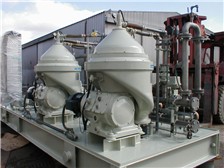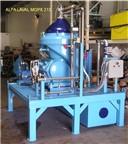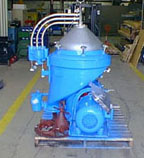The Tennessee Valley Authority was created in 1933 to be a “living laboratory” for harnessing the power of the Tennessee River.
But 77 years later, the development efforts of the federal agency are going nuclear.
TVA directors agreed last week to spend up to $400 million to buy nuclear fuel using a new laser method of uranium enrichment. The pioneering effort, which TVA hopes eventually could cut the cost of uranium processing for up to 12 percent of its nuclear fuel, is one of a half dozen new technologies being pursued in TVA’s nuclear power program.
“We want to be the nation’s leader in increased nuclear production,” TVA President Tom Kilgore told the TVA board last week.
TVA expects to spend up to $8 billion by 2020 to finish its Watts Bar Unit 2 near Spring City, Tenn., its Bellefonte Unit 1 in Hollywood, Ala., and to add more than 500 megawatts of extra generation at existing plants. Within those plants, TVA also is helping to make a key material for nuclear bombs and to reprocess abandoned bomb material for nuclear fuel — the only U.S. utility to do so.
“There’s been a lot of talk about a nuclear renaissance for some time, but TVA seems to be the one utility so far that is making it happen,” said Steve Hedges, editor of the Nuclear Townhall newsletter that promotes more nuclear power.
TVA’s new vision also calls for the agency to test out small reactor designs and pursue reprocessing spent nuclear fuel. Eventually, TVA also may build one of the next generation of nuclear reactors at its Bellefonte plant.
Agency officials say nuclear power plants will generate cleaner energy than the coal plants they will replace, and that testing new enrichment and processing technologies could lessen nuclear wastes and cut fuel costs.
But critics argue that TVA is pursuing unproved technologies and insist the radioactive wastes generated from nuclear power plants will last for centuries.
“Nuclear energy is not clean energy, no matter what you hear from TVA,” said Don Safer, chairman of the Tennessee Environmental Council.
Tom Clements, Southeast campaign coordinator for Friends of the Earth, said TVA is eroding the wall between military and civilian use of enriched uranium and could help to make it easier for developing nations to get the nuclear bomb by advancing new nuclear fuel technologies.
Clements said he is concerned that TVA has agreed to buy uranium fuel for its plants that will be enriched by a new laser technology that could weaken global nonproliferation efforts.
“Laser enrichment is a new, unlicensed technology and there has been no nuclear nonproliferation impact assessment done on this technology, which is a real concern,” Clements said. “The risk is always that this technology will spread and it may be easier to hide than conventional uranium enrichment. These nonproliferation concerns need to be analyzed right now, not after it’s out the door.”
The U.S. Department of Energy helped develop laser technologies to enrich uranium in the 1980s with less energy and less waste than gaseous diffusion or gas centrifuge enrichment. The process now is being developed commercially by General Electric in partnership with Hitachi for potential use in the United States.
The company has a test loop to verify the new technology, officials said Monday.
In 2009, GE-Hitachi asked for a license from the U.S. Nuclear Regulatory Commission to build a Global Laser Enrichment Uranium Enrichment Facility in Wilmington, N.C., but the license has yet to be approved.
NRC spokesman Roger Hannah said regulators still are reviewing the proposal, but he said the NRC doesn’t plan to conduct any assessment about the risk of nuclear weapon technology spreading to developing nations.
“We have very strict security regulations, not only regarding any materials but also the process used to enrich uranium,” Hannah said. “We consider that robust enough to protect the public.”
TVA Chief Operating Officer Bill McCollum said TVA’s contract with GE-Hitachi will diversify its fuel sources by adding another supplier and should help lower its fuel costs if the new technology proves successful in enriching uranium with less energy and waste.
“This entails a certain amount of risk as a new technology that is yet to be commercially proven, “ McCollum said. “But TVA has an enriched uranium inventory that will mitigate against production delays or problems.”
Within the next decade, TVA expects to get more than one-third of its power generation from nuclear facilities. As the nation’s biggest government utility, TVA also has a unique role to work for the national defense in helping both to supply plutonium from nuclear weapons and to reprocess abandoned military weapons for use as nuclear fuel.
“There are a number of promising technologies out there, and it has always been a part of TVA’s mission to serve the national defense and common interest of our country,” said Jack Bailey, vice president of nuclear development for TVA.source: www.timesfreepress.com












